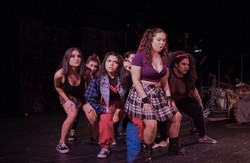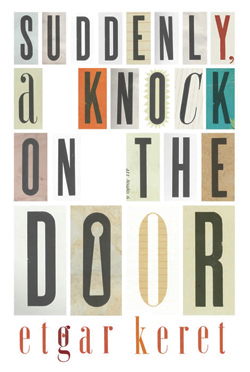Marked by blasts of frenetic energy, political and social symbolism, and unabashed rebellion, the MU Players production of Green Day’s rock opera American Idiot proved that punk is far from dead in the minds of youth today.
With ever-striking lyrics by Billie Joe Armstrong and a book by Armstrong and Michael Mayer, Woods Theater was filled to the brim with the rage and love of a talented student-run cast and crew from April 12 through 15.
Serving as the spring musical, the players detonated their heart grenades in American Idiot to the tune of songs from the rock trio’s 2004 album of the same title.
Direction and production by Kayla Mingino, musical direction by Olivia Mingino, set design by Victoria Lohnes and Ryan McNaught, and choreography by Dennis Breslin and Azalia Whitlock ignited a unique fire that blazed bright.
In an address to the audience, director Kayla Mingino, a junior communication major, commented on the importance of the show to modern viewers, “The story needs to be told now more than ever.”
“Through suburban revolution,” Mingino, continued, “we too can speak up for causes we believe in. Whether that be addiction, or the current political climate, or anything that makes you want to fight back.”
“That is the beauty of this show, and the culture that preceded it. No one is too small to make a difference,” she concluded.
In the fictional setting of Jingletown, USA, American Idiot follows a hot-blooded young Johnny (Ray Laux and Tom Lynskey) and his angst-filled friends Will (Joe Marano), and Tunny (Scott Buksbaum) who decide to leave their hometown out of dissatisfaction.
Will is begrudgingly stopped by his pregnant girlfriend, Heather (Dylan DiRobbio), and must stay home.
Meanwhile, Johnny goes to the ‘big city’ and Tunny enlists in the army.
Obsession, hatred, and misfortune combined follow the young men on their journeys; Johnny meets the mysterious Whatsername and famed drug deity St. Jimmy.
Also, Will struggles with becoming a father, and a broken Tunny finds an Extraordinary Girl in an unlikely place.
Themes of the show include vicious drug addiction, suicide, abuse, sex, anarchy, and struggles of war.
 Performances by the entire cast were passionate and well-executed, as Brislin and Whitlock’s choreographic direction strongly punctuated sentiments of youth resistance in a politically-divided America.
Performances by the entire cast were passionate and well-executed, as Brislin and Whitlock’s choreographic direction strongly punctuated sentiments of youth resistance in a politically-divided America.
Each cast member filled the space with impactful dance-fight choreography, even directly interacting with easily-accessible members of the audience.
The music direction by Olivia Mingino was immersive and authentic.
The eight piece student rock band executed the iconic Green Day set list with expertise. The vocal abilities of the cast on a whole were excellently directed.
The production was also resilient through changes.
Ray Laux played Johnny on the 12 and 13 shows, and Tom Lynskey took over the role on the 14 and 15 due to illness.
Kayla Mingino also stepped into the role on the night of the 13, serving as Johnny for multiple scenes so that the show would continue. Ray, Tom, and the entirety of the cast and crew showed strength in the face of unforeseen consequences.
DiRobbio, a junior communication major, spoke on how she embodied her character, a survivor of domestic violence: “Stepping into the shoes of a woman who struggles to leave a toxic relationship really called for raw emotion to show constantly on my face.”
DiRobbio continued, “I also wanted to make clear that [Heather] escaped and finds happiness, and that it is possible for people in her situation to as well.”
To complement the cohesive imperfection of the characters’ lives, the set was purposefully unruly. Detached set pieces sprayed with layers of graffiti messages like “LEAVE” and “Do you know your enemy?” served as main backdrops.
The live band stood on platforms in the back of the set, their posts accented by traffic cones, beer cans, and various street signs.
Humorous set touches included a sign advertising “The Stoned Pony,” as well as one featuring a 2010 tweet from President Donald Trump detailing how he and First Lady Melania greatly enjoyed their experience at Idiot on Broadway.
Costuming by Whitlock and Makeup and Hair by Ashley Lynn Medina were greatly fit for style and movement alike.
With main features being colored hair, smudged eyeliner, and distressed jeans and flannel, all aspects contributed to distinct ferocity exuded from the cast.
MU Players’ American Idiot was a very poignant piece of art that ended with camaraderie persisting through life-changing strife.
Embodying a true punk spirit, it was equal parts wickedly entertaining and touching.
Attesting to the real-life bonds formed, DiRobbio concluded, “This cast has quickly turned into a family through and through.”
IMAGES TAKEN by Haley R. Gasparine




